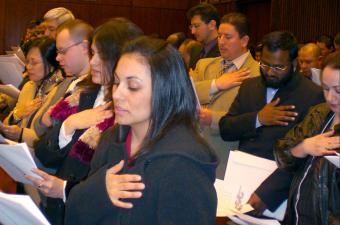Integration Policy
Integration Policy
Recent Activity
Recent Activity
Audio, Webinars
July 14, 2016
The UK vote to exit the European Union has given new momentum to euroskeptic, anti-immigration movements elsewhere. Experts discuss the political and policy lessons that can be learned from Brexit and applied to debates in Europe and North America, including how to address public anxiety over immigration and identity while managing migration in a globalized economy.













